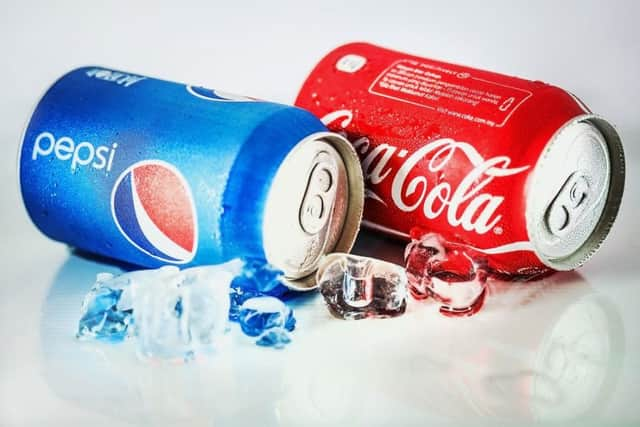Brand choices such as Coke or Pepsi '˜can break up relationships'


‘Brand compatibility’ is more important than shared interests or personality traits when it comes to finding the perfect match, suggests the study.
A person who is dominated by their other half’s consumer choices is likely to become miserable - leading to feelings of resentment and ‘death by a thousand cuts’, say scientists.
Advertisement
Hide AdAdvertisement
Hide AdThe phenomenon has been triggered by the growing obsession with brands, they say.
And it is so strong the drinks and burgers of choice should be included on dating websites like match and eharmony.
Marketing expert Professor Gavan Fitzsimons said liking Coke when your partner chooses Pepsi may not appear a big deal. But it can be the most important factor affecting our happiness.
He said: “People think compatibility in relationships comes from having similar backgrounds, religion or education.
Advertisement
Hide AdAdvertisement
Hide Ad“But we find those things don’t explain how happy you are in life nearly as much as this notion of brand compatibility.”
Fight the low power
The study “Coke vs. Pepsi: Brand Compatibility, Relationship Power, and Life Satisfaction” found participants with ‘low power’ - those who don’t feel they can shape their partner’s behaviour - end up with a brand they don’t like as much.
Co author Danielle Brick, a PhD student now at the University of New Hampshire, said: “If you are lower in relationship power and have different brand preferences than your partner, you’re probably going to find yourself stuck with your partner’s favourite brands, over and over again.
“This could lead to a death-by-a-thousand-cuts feeling. Most couples won’t break up over brand incompatibility, but it leads to the low power partner becoming less and less happy.”
Advertisement
Hide AdAdvertisement
Hide AdExperiments tracking individuals and couples for up to two years used brand preferences in fizzy drinks, coffee, chocolate, beer and cars.
The results were combined with findings on relationship power and happiness and the finding was always the same - whatever the type of product.
‘Robust effect’
Psychologist Prof Grainne Fitzsimons, also of Duke University, said: “It’s an extremely robust effect, we found it over and over and over again.”
Ms Brick said it is likely these effects have steadily gained strength as brands have evolved to play a bigger role in the daily lives of consumers.
Advertisement
Hide AdAdvertisement
Hide AdBut they aren’t given the same weight as other relationship influencing factors because they are not seen as significant.
She said: “If you are a different religion than your romantic partner, you know that if this is an issue you can’t work through, then the relationship isn’t going to last.
“Conversely, if you like Coke and your partner likes Pepsi, you are probably not going to break up over it.
“But 11 years into a relationship, when he or she keeps coming home with Pepsi, day in and day out, it might start to cause a little conflict.
Advertisement
Hide AdAdvertisement
Hide Ad“And if you are the low-power person in the relationship, who continually loses out on brands and is stuck with your partner’s preferences, you are going to be less happy.”
Dating dilemmas
The team said their study published in the Journal of Consumer Research has implications for individuals and firms.
Prof Fitzsimons said: “People who are looking for love should maybe consider including brand preferences on their dating profiles.
“There’s also an opportunity for marketers to seek to be the family brand. Even if two partners have slightly different brand preferences, if they can adopt a joint brand that both are happy about, that might increase happiness for a partner who would otherwise feel unsatisfied.”
He said family branding isn’t currently commonplace.
Advertisement
Hide AdAdvertisement
Hide AdProf Fitzsimons added: “Some brands are marketed as family oriented, but that’s not the same as reaching out to everyone in the family.
“It is tricky, but firms that get it right can have their brand associated with happiness and harmony - and there’s nothing better than that.”